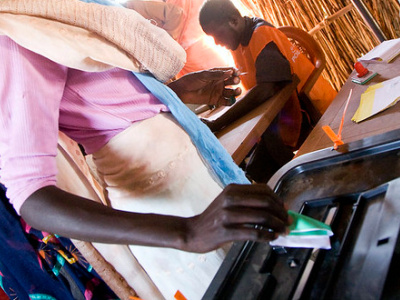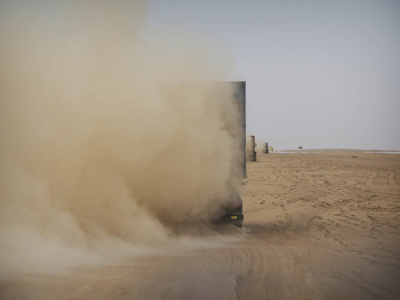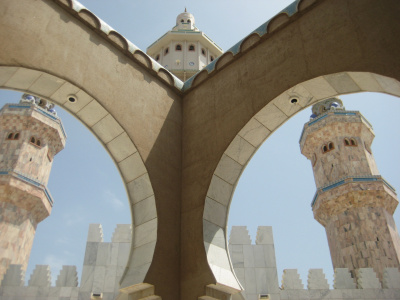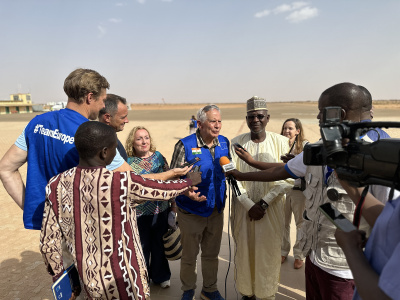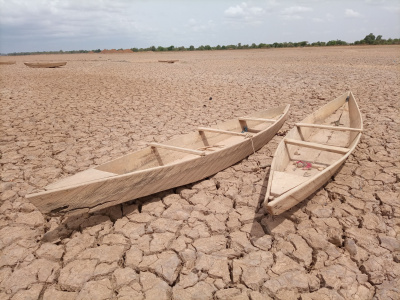
The EU in the Sahel: Be patient, united and critical
Authors
The EU is weighing its options on how to remain engaged in the Sahel, as the region is affected by a series of military takeovers and a spiralling security crisis. The political landscape has changed quite dramatically since the adoption of the first EU Sahel strategy in 2011. Despite these changes, continued engagement in the Sahel is all the more important in view of the incredible challenges facing the region. The EU and its member states should apply ‘strategic patience’ and invest in critical dialogue and targeted communication, while seeking a common position based on shared principles and guidelines.
Changes in the political landscapes
Mali, Burkina Faso and Niger are currently led by military regimes, which came to power in bloodless coups. Unlike in prior coups, these (young) military leaderships have a clearer agenda, are apprehensive of transition timelines and are not afraid to make risky decisions. They are also defiant towards traditional partners (in particular the EU, but also the United States), applying explicitly anti-Western and pro-sovereign discourse.
Unlike in prior coups, these (young) military leaderships have a clearer agenda, are apprehensive of transition timelines and are not afraid to make risky decisions.
Despite the coups, they currently gather popular support and legitimacy, which the democratically elected governments did not enjoy to the same extent. These regimes may stay in place longer than in the past and will likely cement their positions, either through (some form of) elections or through political repression. Their support base may rapidly flounder however, especially if improvements in public services and security fail to materialise.
At the same time, there is a split within regional alliances. The influence of the Economic Community of West African States (ECOWAS) is waning, and the bloc isn't seen as a credible partner in the region. In January 2024, Mali, Burkina Faso and Mali announced their intention to leave the regional body with a one-year notice. ECOWAS is trying – but struggling – to keep the countries on board, for example by using the much-needed financial support it provides to the three countries as an economic incentive.
The AU is absent, and the G5 Sahel has been effectively dismantled following the exit of Burkina Faso, Mali and Niger. For largely economic reasons, the three countries have not left the West African Economic and Monetary Union (UEMOA). They also created a new security partnership, with joint military force, through the Alliance of Sahelian States.
The context in the EU itself has also changed. The Russian war in Ukraine has shifted the EU’s attention to the European continent, and the EU’s domestic constituencies have become more focused on issues at home, such as the cost of living, the impact of the green transition, and migration. In this shifting political climate in Europe, policymakers favour short-term geopolitical objectives and a closer interlinkage between European interests and international cooperation – including in the Sahel. This is putting pressure on the EU’s intention to promote both its values and interests.
These changes in Europe and the Sahel are taking place against a background of increased geopolitical competition. The countries of the central Sahel are actively exploring partnerships with new countries, some of which sit uneasy with the EU. These include China, but also the Gulf States and Turkey. Russia is engaging in political interference and disinformation campaigns, including support to anti-Western discourse, and has been carefully tailoring its security engagements to the demands of the military regimes with the help of its Africa Corps (formerly the Kremlin-linked Wagner Group). There are various offers for cooperation for the Sahel countries. Clearly, the EU is no longer the first point of call.
The countries of the central Sahel are actively exploring partnerships with new countries, some of which sit uneasy with the EU. These include China, but also the Gulf States and Turkey.
Reflections on EU engagement in the Sahel
The current situation lays bare a number of inherent tensions in the EU’s foreign and development policy engagement in the Sahel. The EU is divided over how it should adapt its approach to the Sahel, and to date, there is no agreement within the EU or between member states on how to move forward. Simultaneously, there is a sense that the EU or its member states are not consistent in applying their values and principles when they continue to cooperate with other countries that cannot be called democracies either. These include Mauritania, Tunisia and Egypt, with which the EU signed migration agreements.
France has mostly withdrawn from the region and is reluctant to re-engage in the face of clear rebuttal, in particular by Niger, Burkina Faso and Mali. Reflections on the future of France’s engagement in Africa are devoid of a strong European perspective, a worrying sign for improved unity of action. Some member states are ready to engage with imperfect military juntas – Hungary has decided to send troops to Chad – though with severe human rights abuses as a red line. Others want to reduce cooperation to ‘uncontested’ development (in the areas of health or education for instance) and humanitarian aid.
Avenues for future engagement
In this context, the EU should explore three main avenues to shape its future engagement. First, the EU and member states should explore ‘strategic patience’ and play the long game. While Burkina Faso, Mali and Niger’s regimes have an anti-Western discourse, they have not entirely closed the door on the EU. It is unclear whether new partners, primarily focused on security cooperation, will be able to respond to long-term development needs.
The EU and member states like Belgium, Germany, the Netherlands and Denmark remain engaged, though often through selected and scaled-down interventions. Contributing to governance and security sector reforms and decentralisation, but also public services such as education and health, will be lengthy, costly and not straightforward. Completely disengaging now and trying to re-engage later will be much more difficult and risks severing ties entirely between the EU and countries in the Sahel.
Completely disengaging now and trying to re-engage later will be much more difficult and risks severing ties entirely between the EU and countries in the Sahel.
Second, effective future engagement in the region should be unified, underpinned by shared principles, strategic considerations and guidelines that are jointly agreed upon by the EU and its member states. Some member states have already started to rekindle their engagement in these three countries. But the EU as a whole is still far from following a unified course. For example, insisting on protection of civilians as violent conflict and casualties spiral out of control can probably gather EU consensus as a shared principle.
Third, the EU should invest in critical dialogue and targeted communication. Such critical dialogue should be considerably expanded to include civil society and known local partners, but also different groups of youth and women’s organisations, local authorities, religious and thought leaders, and media. The EU should not shy away from critical voices, or even from those that may not agree with the EU or necessarily align with its values. This will inform its context analysis and avoid future blind spots.
Such dialogue would allow the EU to communicate more effectively with a wider group of counterparts, beyond the central government. Finally, this approach should also involve better communication to EU domestic audiences, notably its citizens, and being more honest about the difficulties of engaging in such contexts, as there is little doubt that the road ahead is bumpy.
The views are those of the author and not necessarily those of ECDPM.
Thank you to Volker Hauck for his useful suggestions and review.



